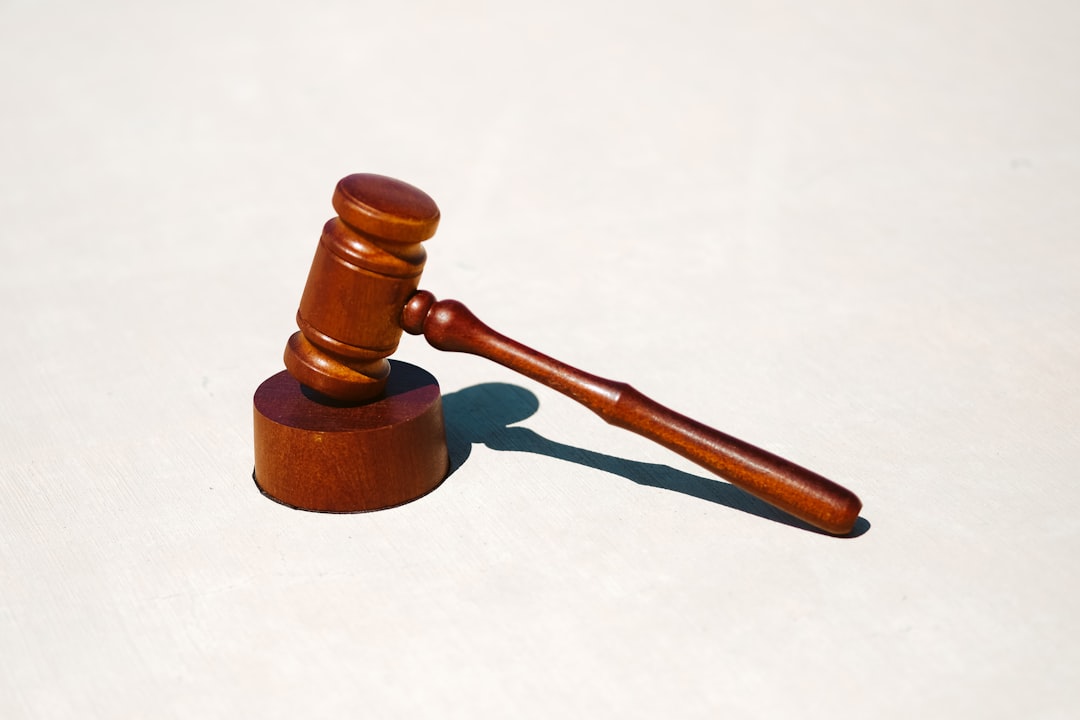The Do Not Call Act, enforced by Florida's Attorney General, grants residents the right to opt-out of telemarketing calls and protects their privacy from unsolicited sales pitches. Ocala, Florida, has strict Do Not Call laws applicable to local and out-of-state businesses. Residents should document unwanted calls, record conversations, and file complaints with the Florida Attorney General's Office and the Federal Trade Commission (FTC). A Do Not Call Attorney Florida can provide expert guidance on evidence collection, legal actions like demanding cessation of contact or seeking compensation, and setting precedents for future cases.
“In Ocala, Florida, understanding and adhering to the Do Not Call Act is crucial for residents looking to protect their privacy. This comprehensive guide aims to empower you with knowledge on identifying and reporting violations effectively. Whether you’re a business or a homeowner, knowing your rights under Florida law is essential. From understanding who’s covered to taking legal action against breaches, this article provides step-by-step advice, including how to engage a Do Not Call Attorney Florida, to ensure compliance and protect your interests.”
Understanding the Do Not Call Act: A Florida Perspective

The Do Not Call Act, a landmark piece of legislation in Florida, is designed to protect residents from unwanted telemarketing calls and sales pitches. As the name suggests, this act grants citizens the right to opt-out of receiving such phone communications, ensuring their privacy and peace of mind. In Ocala, Florida, understanding and adhering to these regulations are not just legal requirements but also considerate practices for a respectful and hassle-free community.
In the state of Florida, the Do Not Call Act is enforced by the Florida Attorney General’s Office, which plays a pivotal role in monitoring compliance and taking action against violators. A ‘Do Not Call’ registration allows residents to block telemarketing calls from businesses across the nation. Any business found violating these rules, especially when targeting registered Florida residents, may face legal consequences, including fines. Therefore, it is crucial for both businesses and citizens to familiarize themselves with their rights and responsibilities under this act, with the help of a qualified Do Not Call Attorney Florida, to ensure fair practices in the telecommunications landscape.
Who is Covered by the Do Not Call Laws in Ocala?

In Ocala, Florida, the Do Not Call laws protect residents from unsolicited telephone solicitations and sales calls. These regulations are designed to give consumers control over their phone communications, ensuring a quieter and less intrusive environment. The laws apply to a wide range of entities, including telemarketers, sales representatives, and call centers operating within the state.
Any individual or organization engaged in commercial activities that involve making telephone calls to Florida residents for the purpose of selling, promoting, or soliciting must comply with the Do Not Call Act. This includes companies based outside of Florida that initiate calls to Ocala numbers. A Do Not Call Attorney Florida can provide guidance and assistance when navigating these regulations to ensure compliance and protect the rights of Ocala residents.
Identifying and Documenting Violations Effectively

Identifying and documenting violations of the Do Not Call Act in Ocala, Florida is a crucial step for both residents and legal professionals alike. As a resident, if you receive unsolicited phone calls from telemarketers despite being on the national “Do Not Call” registry, it’s important to note the details meticulously. Record the caller’s information, including their name, company, call date, and time. Any unique identifiers or references made during the call should also be documented.
A Do Not Call Attorney Florida can help guide individuals through this process, ensuring that all evidence is properly collected and preserved. They can provide advice on when to file a complaint with the Federal Trade Commission (FTC) or the Florida Attorney General’s Office. Effective documentation involves not only recording conversations but also gathering any associated materials, such as marketing collateral left behind by the caller, which can serve as valuable evidence in subsequent legal actions.
Reporting Violations: Steps to Take as a Florida Resident

If you’re a resident of Ocala, Florida, and have experienced unwanted phone calls from telemarketers despite being on the Do Not Call Registry, it’s important to take action. Reporting these violations is crucial to protect your rights and stop the nuisance calls. Here are the steps to follow:
1. Gather Evidence: Keep a log of the suspicious calls, noting the date, time, caller’s phone number if visible, and a brief description of the call. Save any voicemails or texts related to the incident. A Do Not Call Attorney Florida can advise you on how to collect and preserve this evidence effectively.
2. File a Complaint: Contact the Florida Attorney General’s Office, which enforces the state’s Do Not Call laws. You can file a complaint online or by phone. Provide your contact information, details of the violation, and any supporting evidence. Additionally, consider reporting the violator to the Federal Trade Commission (FTC) for further action.
Legal Recourse for Do Not Call Act Breaches

If your rights under the Do Not Call Act have been violated in Ocala, Florida, there are legal avenues to pursue. The first step is to gather evidence, such as recorded calls or written communications from the violator. A Do Not Call Attorney Florida can help you navigate this process and assess your options.
They will guide you through potential remedies, which may include requesting the caller stop all contact, seeking damages for emotional distress, or even pressing charges against the offending party. Retaining legal counsel specialized in telecommunications law is key to ensuring your rights are protected and to set a precedent for future cases involving similar violations.






